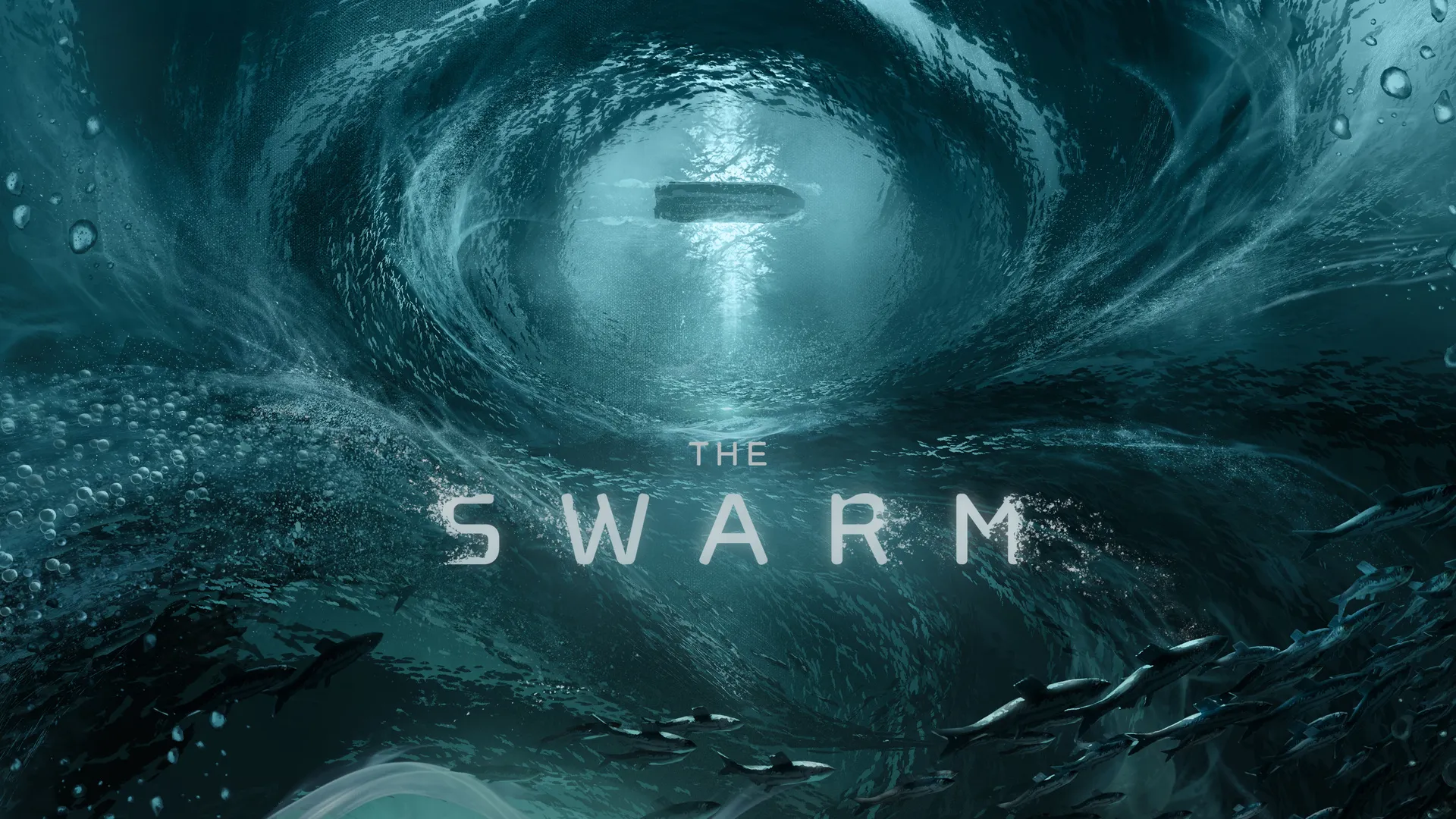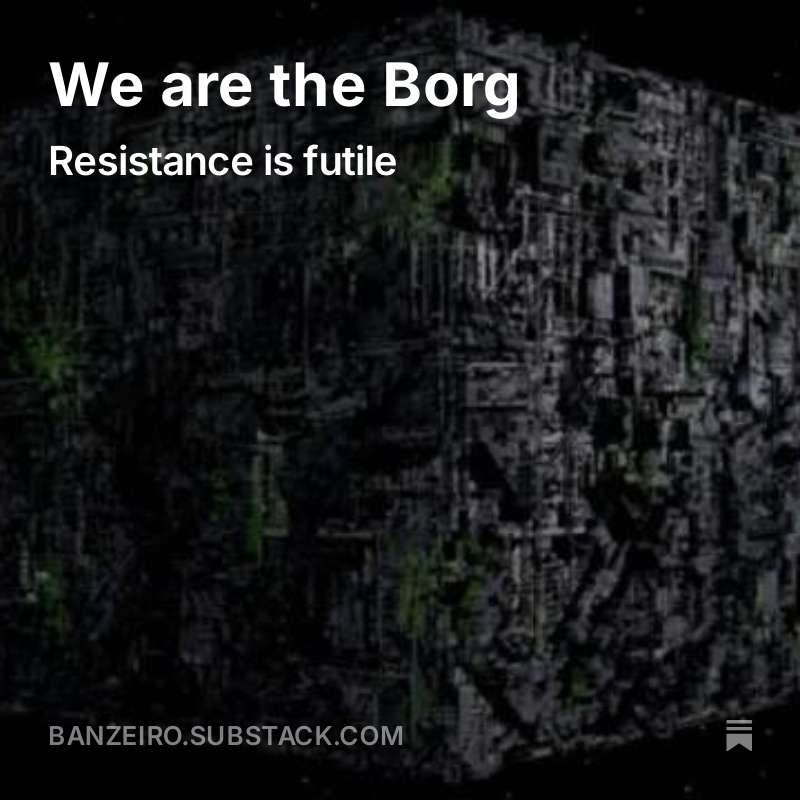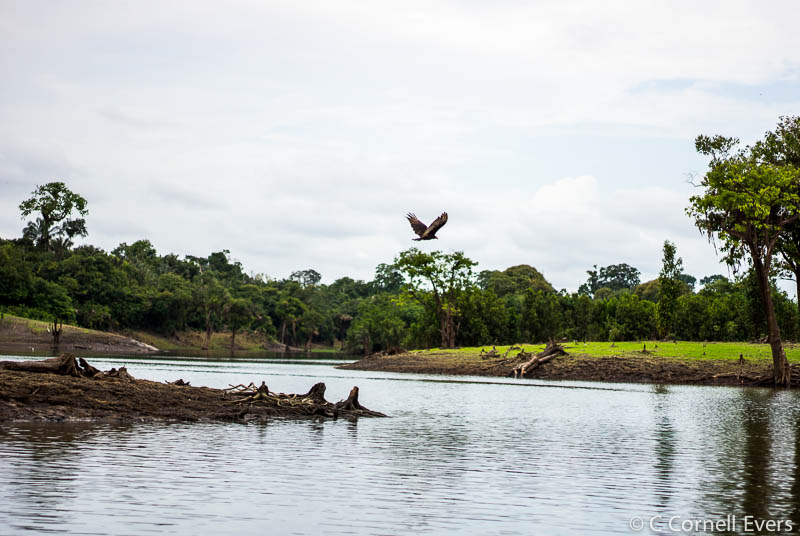“We are the Borg. Lower your shields and surrender your ships. We will add your biological and technological distinctiveness to our own. Your culture will adapt to service us. Resistance is futile.”
De Borg is een fictieve buitenaardse soort uit de Star Trek sciencefictionserie, beroemd om hun angstaanjagende uitspraak: “Verzet is zinloos.” Ze bestaan uit een collectief (zwerm) van cyborgwezens die andere levensvormen en technologieën assimileren om een perfect collectief bestaan te creëren. Het idee dat verzet nutteloos is, vormt de kern van hun filosofie en benadrukt thema’s zoals de strijd tussen individualiteit en collectivisme.
Opkomst van Borg-Collectivisme: Het Verlies van Individualiteit onder Technologische Druk
In onze samenleving vertonen we steeds meer kenmerken van Borg-collectivisme. Dit concept wordt vormgegeven door technologiebedrijven, invloedrijke figuren die hen steunen, en autoritair ingestelde politici. De ‘voettroepen’ in dit verhaal zijn de mensen die, in ruil voor het opgeven van hun eigenheid en privacy, deel uitmaken van een allesomvattend en controlerend digitaal netwerk. Zelfs de natuur ontsnapt niet aan deze dwang tot assimilatie. Voor velen is ze alleen waardevol wanneer ze ten dienste staat van het collectief. De natuur moet zich aanpassen, met of zonder instemming. De vraag is hoe lang ze deze situatie nog zal tolereren voordat ze terugvecht.

“De Zwerm” (Engels: “The Swarm”) is een roman van de Duitse auteur Frank Schätzing. Deze in 2004 gepubliceerde eco-thriller speelt zich af in de oceanen van de wereld. De verhaallijn begint met een reeks mysterieuze gebeurtenissen in de zeeën, waaronder ongewoon en zelfs vijandig gedrag van zeedieren en het uitsterven van bepaalde mariene soorten. Wetenschappers wereldwijd worden geconfronteerd met een dreiging die niet alleen de oceanen, maar ook de mensheid in gevaar brengt.
Het boek behandelt thema’s zoals milieuproblemen, de relatie tussen mens en natuur, en de teloorgang van mariene ecosystemen. Bovendien nodigen de gebeurtenissen in het verhaal uit tot breder nadenken over de ethiek van wetenschappelijk onderzoek, klimaatverandering en de impact van menselijk gedrag op de aarde.
Gezien de huidige milieu-uitdagingen is het boek bijzonder relevant. Het diende als inspiratie voor de in 2023 uitgezonden, door het Duitse ZDF geproduceerde, sciencefiction televisieserie “The Swarm”, onder leiding van Barbara Eder, Luke Watson en Philipp Stölzl. De serie toont de strijd tegen een mysterieuze diepzee-intelligentie die met onder andere aanvallen van orcas (!) en zelfs bultrugwalvissen reageert op de door mensen veroorzaakte schade aan het milieu.
The Swarm is te zien op Canal+
![]()
From Borg to Swarm – A Reflection on Individuality and Nature
“We are the Borg. Lower your shields and surrender your ships. We will add your biological and technological distinctiveness to our own. Your culture will adapt to service us. Resistance is futile.”
The Borg are a fictional alien species from the science fiction series Star Trek, famous for their terrifying statement “Resistance is futile”. They consist of a collective (swarm) of cyborg beings who assimilate other life forms and technologies to create a perfect collective existence. The idea that resistance is futile is at the core of their philosophy, highlighting themes such as the struggle between individuality and collectivism.
Rise of Borg Collectivism: The Loss of Individuality Under Technological Pressure
In our society, we are increasingly exhibiting characteristics of Borg collectivism. This concept is being shaped by technology companies, influential people who support them, and authoritarian politicians. The “foot soldiers” in this story are the people who, in exchange for giving up their individuality and privacy, become part of an all-encompassing and controlling digital network. Even nature is not exempt from this compulsion to assimilate; for many, it is only valuable when it serves the collective. Nature must adapt, for better or for worse. The question is how long it will tolerate this situation before it strikes back.
“The Swarm” is a novel by German author Frank Schätzing. Published in 2004, this eco-thriller is set in the world’s oceans. The story begins with a series of mysterious events in the seas, including unusual and even hostile behavior by marine animals and the extinction of certain marine species. Scientists around the world are confronted with a threat that threatens not only the oceans, but also humanity.
The book addresses issues such as environmental problems, the relationship between man and nature, and the decline of marine ecosystems. In addition, the events of the story invite a broader reflection on the ethics of scientific research, climate change, and the impact of human behavior on the Earth.
The book is particularly relevant to today’s environmental challenges. It served as the inspiration for the 2023 science fiction television series “The Swarm”, produced by Germany’s ZDF and directed by Barbara Eder, Luke Watson, and Philipp Stölzl. The series follows the battle against a mysterious deep-sea intelligence that responds to human-caused environmental damage with attacks by orcas (!) and even humpback whales.





